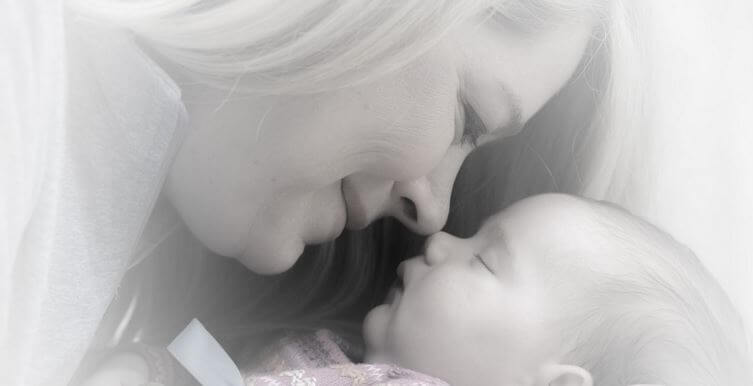Your Baby's Smell: A Sensational Connection

Is there anything more wonderful than a newborn baby’s smell? Is there anything that melts our hearts and touches our feelings like the fragrance of our own little ones?
There is probably not much in life as unforgettable, or that can inspire and intensify our love like a baby’s smell.
No other smell will affect you in the same way, and no other smell is as necessary as your baby’s smell. It envelops you in a little oasis of love, care and protection.
The smell and taste of things remain poised for a long time, like souls, ready to remind us, waiting and hoping for their moment, amid the ruins of all the rest; and bear unfaltering, in the tiny and almost impalpable drop of their essence, the vast structure of recollection.
Marcel Proust, Remembrance of Things Past

A baby’s smell is a heavenly symphony
There are studies that demonstrate that a baby’s smell is as addictive for women as some drugs. This makes evolutionary sense, as our sense of smell strengthens the bond between mother and child.
But how does this work? Let’s take a closer look at this biological reaction, which is closely linked to our maternal instinct.
Firstly, we should know that the nose is essential for our emotional connections with the world around us. The part of our brain that deals with this is called the rhinencephalon or olfactory brain.
The olfactory bulbs are directly linked to the amygdala, the brain center that governs our instincts, among them maternal instinct. They also signal to our brains to release dopamine, a hormone directly related to the most pleasurable rewards.

This means that a baby’s smell will always be associated in our minds with overwhelming feelings of love and protection.
A baby’s smell is so powerful that recent studies have given weight to the idea that changes during pregnancy and the postpartum period give women a more sensitive and accurate sense of smell. Mothers really do become more aware of smell.
This phenomenon is essential to the creation of the mother-child bond at a neuronal level, which is critical for the child’s emotional development.
Although our sense of smell develops during pregnancy, it is at the moment of birth itself that the biggest neuronal transformation of all takes place: imprinting.
It is an imprint that we will remember for the rest of our lives: the first thread in a network of sensations that link mothers to their children. In fact, within 24 hours, a mother is capable of distinguishing the smell of her newborn baby from others.

A baby’s smell is a fundamental part of emotional communication
When a mother holds, cuddles or strokes her child, her arms and hands silently expresses pure, direct love. Similarly, when the child snuggles in their mother’s lap, both of them communicate without saying a word.
This emotional communication with our babies through little gestures is one of the most enjoyable parts of this stage. It is something that almost every mother remembers as her children grow up.
It is interesting to write about these sensations and somehow record those little details that bring us so much comfort and remind us just how much we love our children.
In this way, when our children are older, we will be able to evoke these sensations. We will be able to tell our little ones their story as faithfully as possible.
It is a pity that we cannot capture the smell of our babies in a bottle. It is, without a doubt, one of the most powerful fragrances we come across in our lives. A baby’s smell is associated with the sweetest, purest memories, that stay with us for a lifetime.
All cited sources were thoroughly reviewed by our team to ensure their quality, reliability, currency, and validity. The bibliography of this article was considered reliable and of academic or scientific accuracy.
- Lundström, J. N., Mathe, A., Schaal, B., Frasnelli, J., Nitzsche, K., Gerber, J., & Hummel, T. (2013). Maternal status regulates cortical responses to the body odor of newborns. Frontiers in psychology, 4, 597. https://www.frontiersin.org/articles/10.3389/fpsyg.2013.00597/full